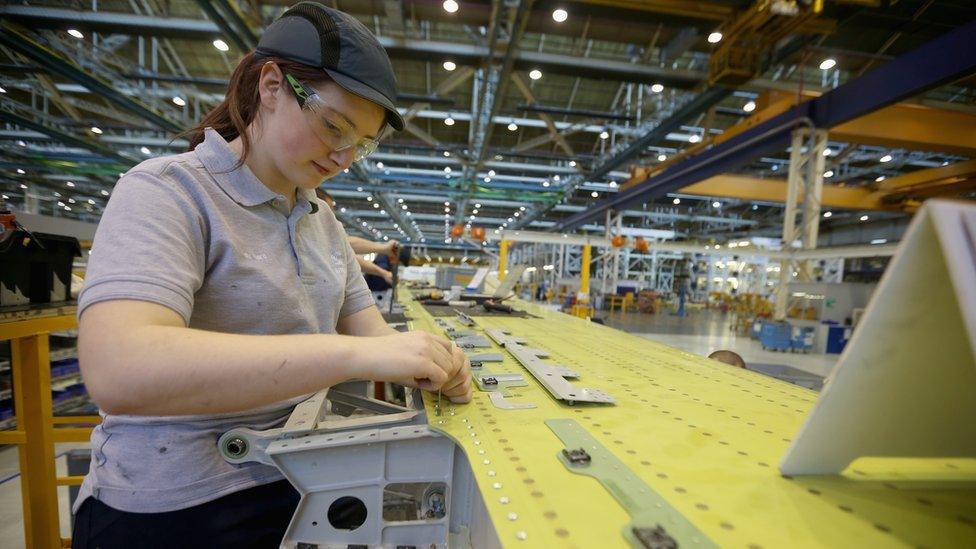Carwyn Jones: Labour must show it is distinctly Welsh
- Published
Carwyn Jones says Labour has delivered 'a huge amount' for the people of Wales
What has devolution taught the Labour Party?
Carwyn Jones thinks the lesson is that the party must show it is distinctly Welsh.
Voters aren't interested if they suspect someone in London is pulling the strings, he says.
"We suffered in 1999 because we were seen as a party being controlled by London and we have to accept that. That's not the case any more."
Between now and polling day on May 5 he'll be doing his best to convince you that Labour has learned that lesson over the last 17 years.
Labour wants its campaign to have a distinctly Welsh flavour. That's why its Welsh leader will be front and centre throughout.
He wants another five years in power to complete a "decade of delivery" that started in 2011.
But opponents say he's had long enough to deliver. He's been first minister since 2009. Labour has led the Welsh government since 1999.
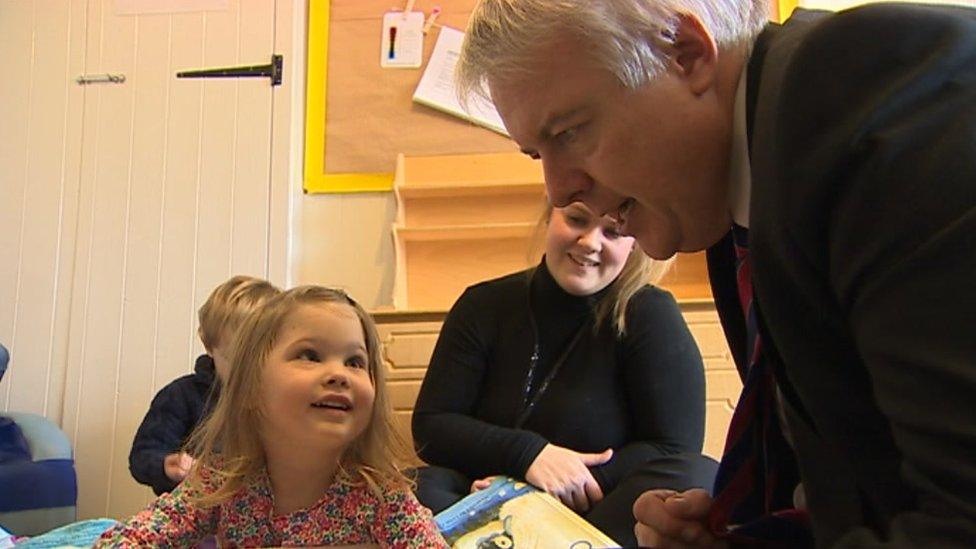
On a campaigning visit to a day care nursery in Cardiff, he brushes aside that criticism.
"I think we've delivered a huge amount for people," he says.
He cites "ground breaking laws" on organ donation and Aston Martin's recently announced plans to build luxury cars in south Wales.
Were it not for devolution, "we would have a junior doctors' strike".
But the opposition parties see it differently. Were it not for Welsh Labour's devolved government, we'd have shorter waiting times in the NHS, according to the Conservatives.
Labour's record in the health service will be the big battle ground in the election - an election Mr Jones says is "a straight fight" with the Tories.
He says UKIP pose a threat to Labour too, but in our interview - as in his Welsh Labour conference speech last month - he doesn't mention Plaid Cymru at all.
It's a reflection of Labour's strategy to convince voters this is an either/or election: either keep Carwyn Jones as first minister, or hand over the reins to Andrew RT Davies, the Welsh Conservative leader.

Carwyn Jones denies distancing himself from Jeremy Corbyn's policies
But could that strategy be undone by the spectacle of Labour MPs feuding with each other in Westminster since Jeremy Corbyn was elected leader after last year's general election defeat?
"What we've seen in London hasn't helped. Nobody could pretend otherwise," he says.
"It's calmer there now but people don't like parties which are fighting with each other."
He adds: "What we've said to people is as Welsh Labour we're united. We've got a programme going into the election. I'm the leader.
"And the policies that we will develop in Wales, the policies we will put in our manifesto, are all crafted in Wales.
There's no influence over those policies in terms of our colleagues in London. They wouldn't seek to influence our policies anyway."
Mr Jones likes to call his Welsh government a "pro-business government".
I ask him whether that's his coded way of distancing his administration in Cardiff from the left-wing politics of Mr Corbyn and his supporters.
"No. This is my way of differentiating Welsh Labour as a party. I would do this regardless of what the situation was in London," he says.
"We've done it in elections past. People in Wales want to support parties that they feel have a degree of autonomy, enough of a degree of autonomy, that makes them a properly Welsh party with roots in Wales."
'Sacrifices'
He denies that his "decade of delivery" is a hint that, if he wins, he's planning to stand down at 2021 election.
He and wife Lisa have a son Ruairi and daughter Seren, both of whom are at school. Does he ever wonder about life away politics - a life where he could spend more time with them?
"The honest answer is yes, it has been difficult for the family. My children have only know me as a minister and you do make sacrifices in this job.
"When I get spare time I do spend time with the family. It means you've not got much time for anything else."
But he adds: "I love the job. It's for other people to decide whether I stay in it obviously. You couldn't do this job if you didn't like it."
Those other people - the voters - will make their decision on May 5.
- Published25 February 2016
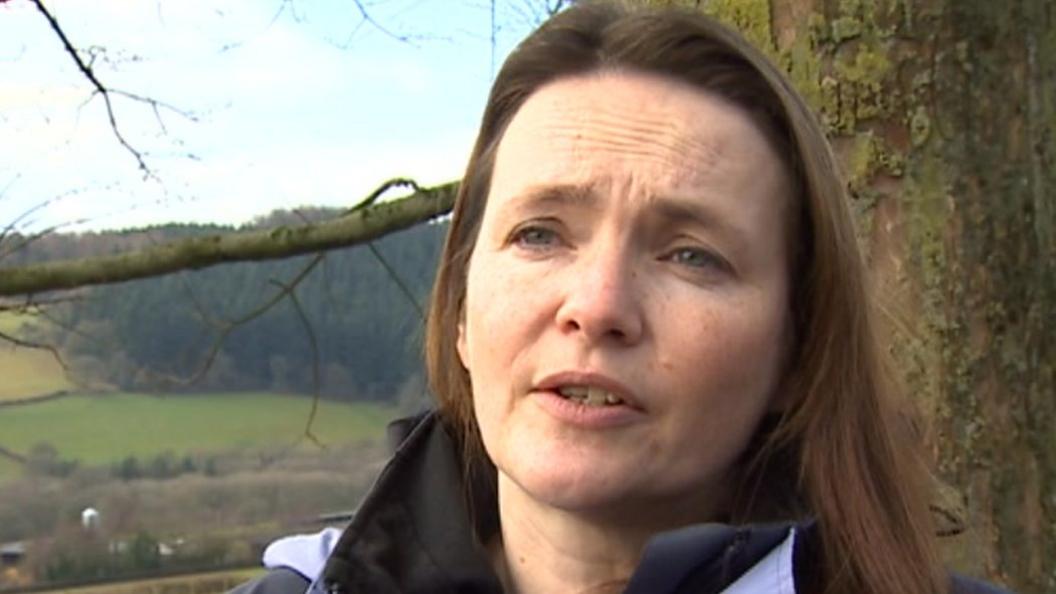
- Published16 February 2016
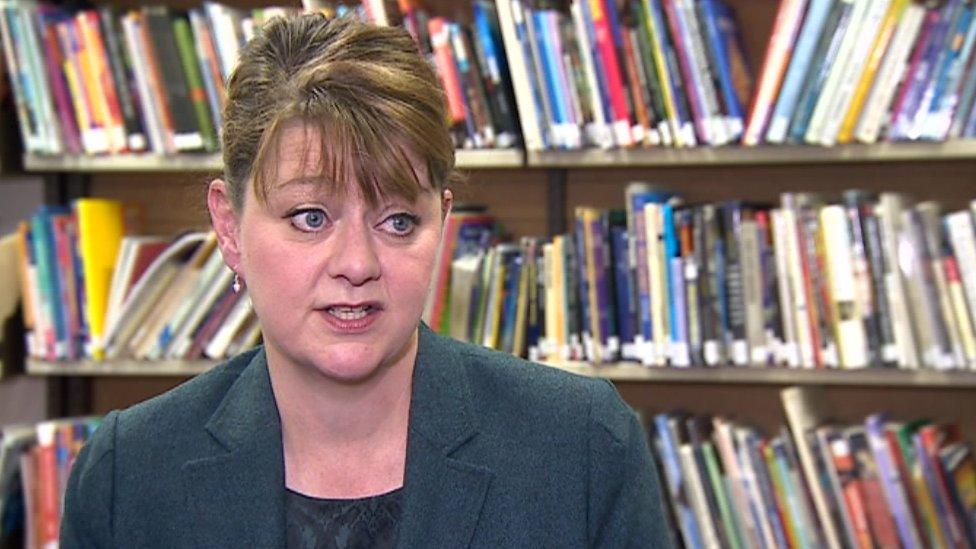
- Published10 February 2016
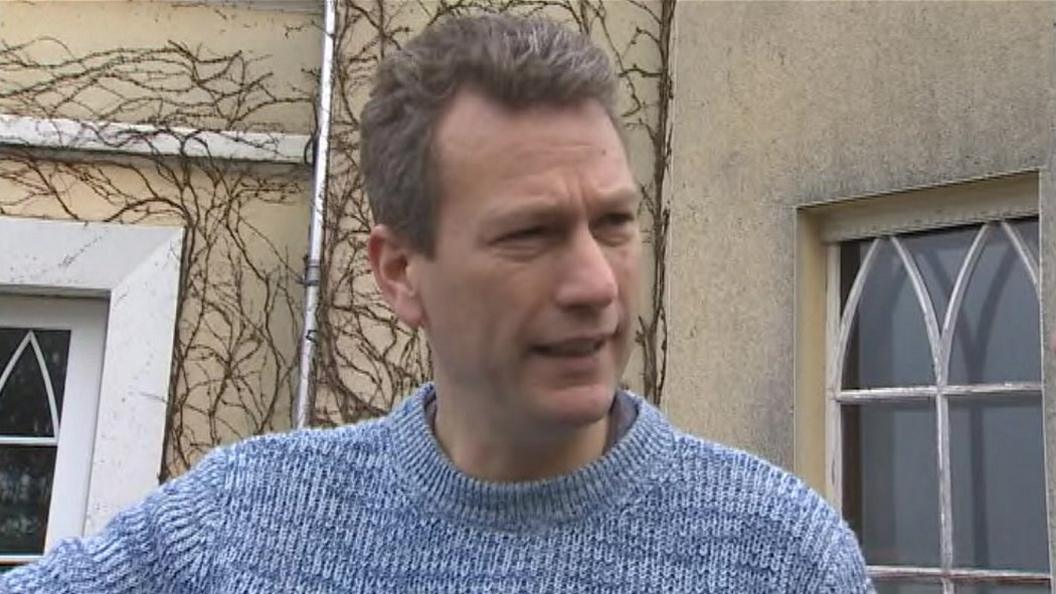
- Published20 February 2016
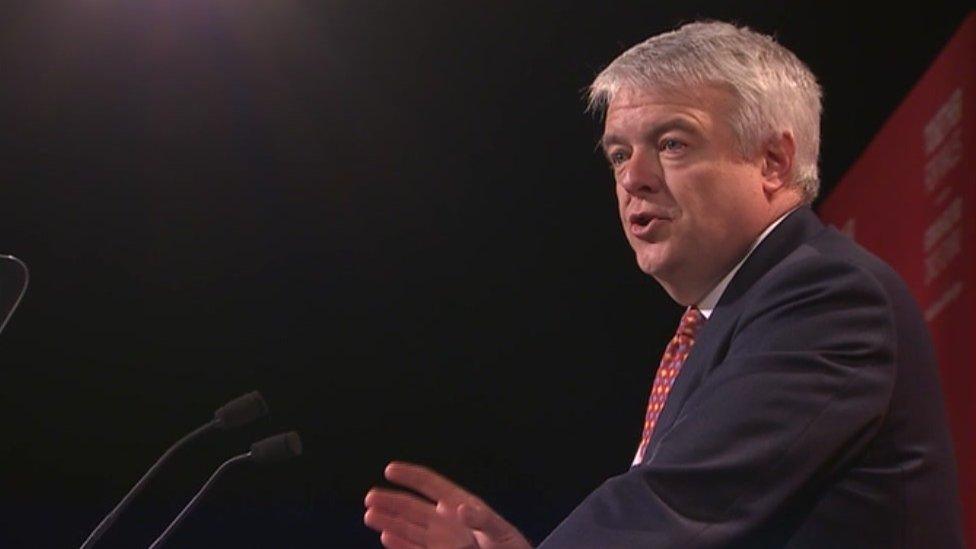
- Published20 February 2016

- Published15 February 2016
